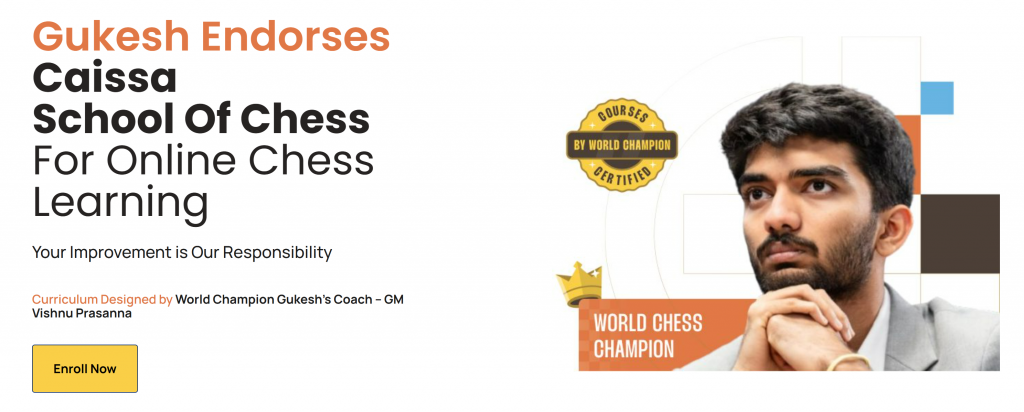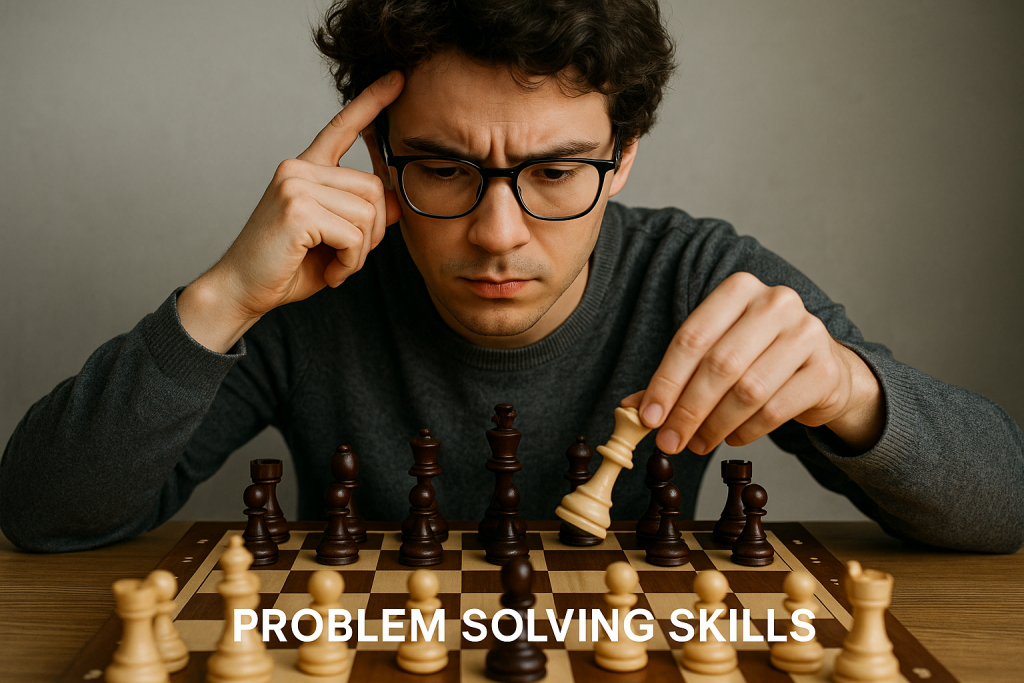Chess’s inherent complexities demand critical thinking, decision-making, and predicting outcomes, all of which are vital skills in creative problem-solving. Here’s how chess can sharpen your creative thinking:
Pattern Recognition
Chess players learn to spot recurring patterns and structures on the board. This skill is equally valuable in recognizing patterns and similarities in different problems, leading to creative solutions.
Calculation and Visualization
Chess requires you to calculate and visualize future moves and their consequences. This same skill is pivotal in problem-solving, where predicting the outcome of your decisions is essential for creative solutions.
Adaptability
Players often need to pivot their strategies when their initial plans are thwarted. This trait fosters open-mindedness and the ability to explore alternative solutions to problems.
Time Management
Chess games impose time constraints on each player, teaching them the importance of managing time efficiently.
Analytical Skills
Chess enthusiasts spend hours analyzing games and positions. This analytical mindset can be transferred to dissect complex problems, break them down into manageable parts, and craft creative solutions.
Handling Pressure
Developing the capacity to remain calm and focused under pressure equips you to tackle high-stress problem-solving situations with grace.
Learn from the Masters
Famous chess players have often shared profound insights into the parallels between chess and creative problem-solving. These insights not only inspire chess players but also provide invaluable lessons for life:
The legendary Bobby Fischer, considered one of the greatest chess players of all time, once remarked, “Chess demands total concentration and love, a deep and abiding interest in the problem to be solved.“
Former World Chess Champion Vishy Anand echoed the sentiment, stating, “In chess, you control the game. You are the creator; you are the one who steers the story.“
Emanuel Lasker, another legendary chess player, summed it up eloquently, saying, “On the chessboard, lies and hypocrisy do not survive long. The creative combination lays bare the presumption of a lie; the merciless fact, culminating in a checkmate, contradicts the hypocrite.”
Just as in chess, creative problem-solving in life is the ultimate checkmate.
Applying Chess Strategies to Life
Now that we’ve established the connection between chess and creative problem-solving, how can you harness this connection to enhance your abilities in real-life scenarios? Here are some practical steps:
Regular Practice
Just as chess players continually practice to improve, engage in regular problem-solving exercises to sharpen your creative thinking.
Analyze and Learn
Chess players review their games to understand their decisions and their consequences. Apply this practice to real-life problems, learning from both successes and failures.
Persistence
Chess players don’t abandon the game after a few losses. They persist, learn from their experiences, and adapt. Dedication and persistence in problem-solving can lead to innovative solutions.
Seek Diverse Perspectives
In chess, players analyze their opponent’s moves from various angles. In problem-solving, consider multiple viewpoints when tackling a problem. Collaborating with others can lead to fresh insights and solutions.
Embrace Challenges
Chess players face strong opponents without fear. Similarly, tackle complex problems head-on. These challenges are opportunities to hone your creative problem-solving skills.
Looking for a place to begin your journey? Check out Caissa School of Chess to start exploring the art of chess and creative thinking today.

The Caissa App is a game-changer for chess players, sharpening pattern recognition, calculation, visualization, time management, and analytical skills. Whether you’re a beginner or a seasoned player, it’s the ultimate tool to level up your game.
Play a game now for free and get analyzed!






